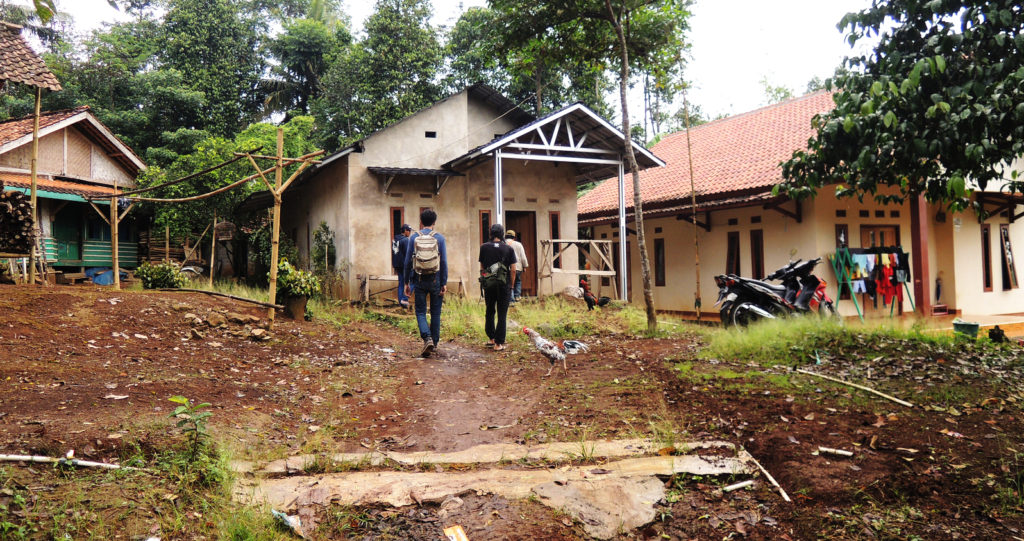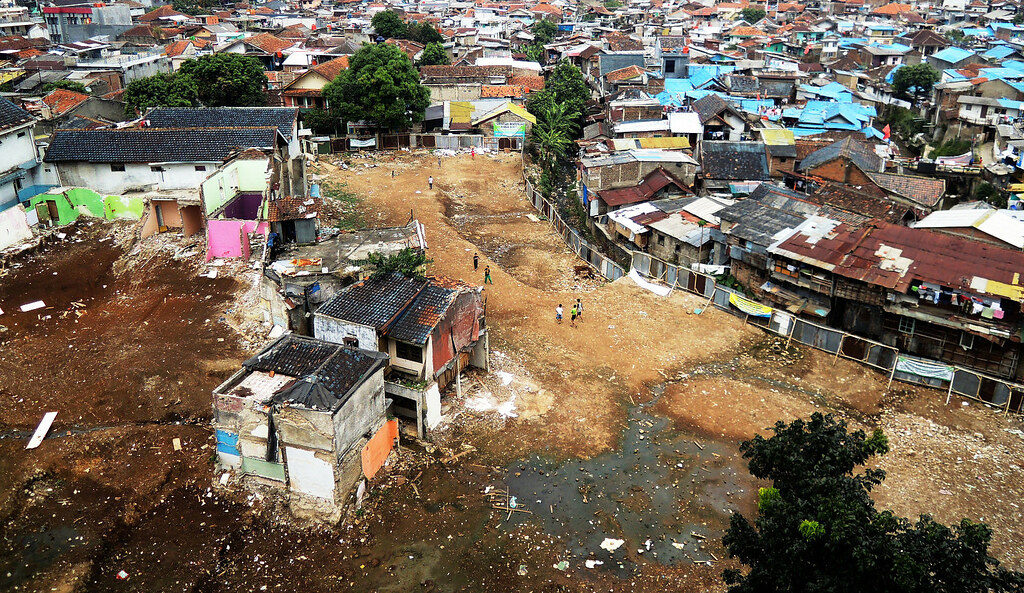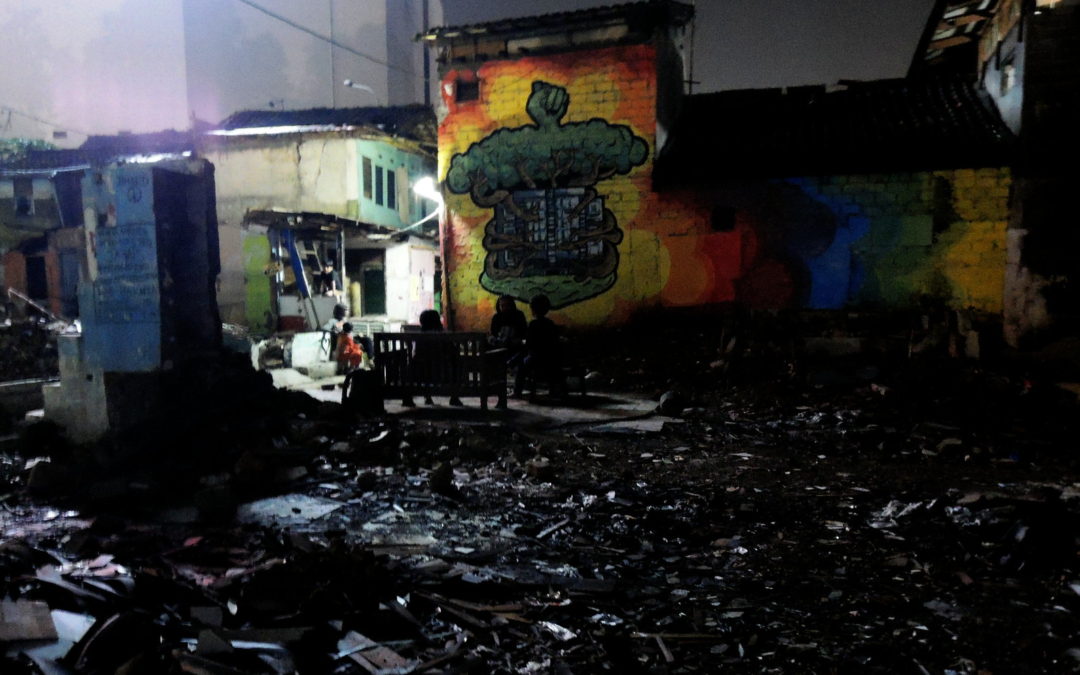Below is the translated overview of a new activist research1 project from the independent Taiwanese collective Events in Focus (焦點事件), with a call for donations to help fund the project. Their perspective differs from ours in some ways,2 but we’ve decided to translate this overview and help them raise money since this is the most serious Sinophone investigation into Chinese overseas investment that we know of so far, with at least a few mainland and Hong Kong Maoists, Trotskyists and anarchists expressing support for the project.3 It therefore seems important to introduce Events’ research to English readers through this and possibly future translations, and eventually to respond to it through our own writings on the topic.4
Scroll down for the Chinese original.
–Chuang

Events in Focus is an independent media platform in Taiwan that focuses on social movements, and, through this focus, hopes to help advance those movements. At the end of 2017, we launched our project “Belt and Road in the Great Game,” which hopes to break through national borders by taking the political, economic and social-developmental dimensions of the global conflict between major capitalist powers as its starting point. The project traces the outlines of China’s “Belt and Road Initiative” (BRI), developing international reports about issues of global consequence.
Last year (2018), onsite investigations into Indonesia’s Bandung-Jakarta High Speed Rail and the “City Without Slums (KOTAKU)” projects were completed and published. Afterwards, we revisited earlier research on global neoliberalism in the 1990s, using as a case study the local and international movements against the Narmada dam projects in India funded by loans from the World Bank, and examining the Bank’s implementation of the “Environmental and Social Framework” (ESF).
This year (2019), we plan to visit the Japanese-designed and Chinese-invested hydropower plant at Batang Toru, North Sumatra, in order to learn about the threat it poses to local tribes and ecology. We also plan to travel to Thailand, Laos and other areas along the Mekong River basin in order to learn about international competition and cooperation in river management and hydrological infrastructure as they relate to Indochina’s most important river, with its headwaters in Southwestern China (where it is known as the Lancang River).
The basic methodology used in these reports is as follows: First, we get in touch with locals who are affected by these international projects, conducting interviews and transcribing reports. Then we gather related materials, ranging from individual cases to records relating to the entire project, in order to formulate a more complete perspective.
In July of this year, Hong Kong’s anti-extradition movement broke out, and we produced a series of reports related to this. Beyond the immediate appearance of the movement, we also addressed Hong Kong’s political and economic history, highlighting Hong Kong’s role as an essential gateway for the Belt and Road Initiative, even as it becomes gradually more integrated into the greater Pearl River Delta region.
Within these reports, we discovered that the BRI is inextricably linked to the infrastructure development plans originally formulated by the countries along the route, as well as to the competition between different imperial powers in these regions.
For example, each country’s hydrological infrastructure can often be traced back to Japanese Imperial influence prior to the Second World War. The reservoir projects in Korea and Manchuria are one instance, but similar projects were implemented across Southeast Asia under Japanese occupation. After the war, such projects continued under the guise of “reparations.” After this came the World Bank, the Asian Development Bank, or the development banks of countries like the US and Japan, all using loans to advance the interests of the countries that controlled them.
That is to say, whether as imperial colonies or “dependent developers,” policies beneficial to the international flow of capital have been continuously advanced in these countries for a hundred years. After the new millennium, China’s abrupt rise has led it to export surplus capital, and in this regard it is no more than one among numerous competitors. Or maybe we can say that China’s “Going Out” is also its entry into an arena built by the imperialists.
Therefore, aside from interviews, we plan to do more discussions and textual research this year. We also intend to visit Japan to learn about both the history and the current state of capital exports across Asia in service of the profits of Japanese transnationals. We also hope to understand how, after the 1990s, Japanese civil society has acted to scrutinize international infrastructure banks.
Aside from this, in order to obtain a systematic understanding of the phenomenon, we also plan to explore the relationship between BRI and its major players: China’s state-owned enterprises. Unlike the global “neoliberalism” of the 1980s-1990s, China has not pursued large scale “privatization.” Instead, through policies that forced reforms on the state-owned sector, China’s state-owned enterprises became simultaneously dominated by the bureaucracy and profit-oriented. At the turn of the millennium, they went from fulfilling domestic demand to serving export production. And today, they are taking the lead in the BRI.
The valorization of state-owned capital via capital exports is what makes China different from other large capitalist countries. This is a distinguishing feature of China’s “bureaucratic capitalism.” Grasping the state-owned enterprises, then, is also essential for grasping the core of the BRI. This is the main thing that we are working on this year.
As an independent media organization aligned closely with social movements, an important part of our work is the facilitation of interconnections and dialogue between different movements. This project, “Belt and Road in the Great Game,” was launched with the understanding that any such work limited by borders or nationality is insufficient. We hope to break through the limits of culture and locality in order to facilitate understanding between ordinary people of different countries and regions, or even help to further the possibilities for interconnectedness.
We chose the BRI as our starting point in this project because it marks an important milestone in the development of the global capitalist system following the Cold War. After the end of the Cold War, the conflict between different factions of international capital and the major powers that back them became even more intense. We hope that by paying attention to the BRI’s development we will be able to find not just the hegemonic interests of capital, but also discover the fundamental grassroots perspectives in different countries, and their potential for action. Therefore, this project should be understood to be anti-imperialist and anti-colonial, not “anti-communist” or “anti-China.
The project has to be carried out continuously for an extended period of time, otherwise it won’t bear fruit. Events in Focus is just a small group and requires assistance. But since we don’t want to rely on any one benefactor or funding program, we’d rather rely on distributed, small-sum donations for our work, in order to maintain its independent character.
Calling for donations is itself an important part of our media advocacy, as it helps to foster relationships with our supporters and readers. It is, in itself, a movement. This is an important reason for our own “Going Out.” As we extend our antennas to make contact with others across the globe, we hope to make friends around the world.
Donations can be made via credit card, either as a single donation or a monthly one. (Donations will be converted into Taiwan Dollars. Currently 1 US Dollar exchanges for approximately 30 Taiwan Dollars.)
English page for monthly donations: https://eventsinfocus.neticrm.tw/en/civicrm/contribute/transact?reset=1&id=7
English page for one-off donations: https://eventsinfocus.neticrm.tw/en/civicrm/contribute/transact?reset=1&id=5

2019/9焦點事件「帶路博奕」計畫簡介
《焦點事件(Events in Focus)》是台灣以社會運動為關注核心,並以「媒體」這個角色,進行運動實踐的獨立媒體。2017年底推出「帶路博奕」計畫,希望脫離國境的限制,以資本主義大國之間的衝突,這個全球政治、經濟、社會發展的新形勢為出發點,沿著中國「一帶一路」倡議沿線,發展國際報導,關注全球議題。
去年(2018),完成了印尼「雅萬高鐵」沿線,以及「沒有貧民窟的城市(KOTAKU)」計畫的採訪與報導之後,也整理了1990年代,從印度到全球,反對世界銀行對納瑪達河流域(Narmada River)水利設施貸款的運動,以及之後世界銀行所發展出「環境暨社會框架(Environmental and Social Framework,ESF)」的實踐,以及其在全球新自由主義中,扮演的角色。
今年(2019),我們預計前往印尼北蘇門答臘的巴丹托魯(Batang Toru)水電廠,了解這個由日本規劃、中國投資的水電廠,對於當地部落、生態造成的威脅。也將前往泰國、寮國等湄公河流域國家,了解上游為中國瀾滄江的這條中南半島重要河流相關的基礎建設,以及跨國河流治理的競爭與合作。
這些工作的基本方法,首先是實際接觸受到跨國基礎建設影響的當地居民,進行採訪報導,並且廣泛的收集資料、從個案到通案,發展出更整體的觀點。今年6月,香港發生「反送中」的大規模社會運動,我們也在這個問題意識下,做系列報導;除了記錄運動的樣貌之外,也處理香港政治、經濟的歷史問題,並留意到了香港作為「一帶一路」重要門戶,以即使其逐漸融入中國珠江三角洲的各項基礎建設。
在這些工作中,我們發現,「一帶一路倡議」這個以沿線國家原本計畫中的基礎建設發展出來的計畫,與不同的帝國主義在這些區域裡的發展,有著密不可分的關係。
例如,各國的水利設施,最早可以推到日本在二次戰前,於朝鮮、滿州推動的水庫計畫,二戰中,在日本佔領下,也著手在東南亞推動,戰後,則轉變成「賠款」的形式繼續;接下來,是世界銀行、亞洲開發銀行,或者美、日等國的個別基礎建設開發銀行,以貸款的方式,在各國推動。
也就是說,這些從帝國主義的殖民經濟,到推動全球資本主義的「依附性發展」,與有利於資本跨國流動的政策與設施,百餘年來是持續地進行著的,仟禧年後,中國崛起,將剩餘資本輸出,不過是這諸多競爭者中的一員;或者說,中國的「走出去」,也就是走上了這個由帝國主義者所搭建的舞台。
因此,在實際的採訪計畫外,今年也預計做更多的資料整理與論述工作,我們還將走訪日本,找尋日本從戰前到戰後,挾軍事的力量,在亞洲各國推動資本輸出,進行為日本跨國資本利益服務的基礎建設歷史及現況,也希望了解在1990年代之後,日本民間監督跨國基礎建設銀行倡議行動。
除此之外,我們也計畫對「一帶一路」的主體,也就是中國的國營企業,做更有系統的了解。和上個世紀80、90年代不同地方,是在全球「新自由主義」的發展下,中國並沒有進行大規模國企的「私有化」,而是透過政策,倒逼國企改革,而產生了由官僚主導,利潤化導向的國企,千禧年後就成為從「內需」,到「出口」的主要擔當者。也是今天「一帶一路」的主角。
透過國營資本實現的資本輸出,這是中國與其他資本主義大國不同的地方,也是中國「官僚資本主義」的特色,對於國企的掌握,是掌握「一帶一路」的核心議題;這也是我們在今年,所正進行的重點工作。
做為一個與社會運動密切結合的獨立媒體,如何透過報導,促成不同社會運動領域的連結和對話,是重要的工作,「帶路博奕」計畫的推出,就是意識到,在一國一地內,這種工作的不足,希望突破地域與文化的限制,促成國際間基層人民間的理解,乃至進一步連結的可能性。
這個計畫,以中國「一帶一路」倡議為關注的起點,是因為它是全球資本主義體系發展,從「冷戰」走出來,進入了新階段的重要指標,冷戰結束後,跨國資本與大國間的衝突更為劇烈,我們希望藉著對「一帶一路」發展的關注,找到資本霸權與資本利益之外,從各國草根群眾利益為基礎的觀點與可能的行動。所以,這個計畫的基本價值,是「反帝反殖」,而不是「反共反中」的。
它必須長期、常態地持續進行,否則不可能有所成果的;而《焦點事件》的團隊規模很小,需要更多的幫助,我們不希望依賴個別的大金主,或者各種補助計畫,而希望用分散式、小額的捐款來支持我們的工作,並維持它的獨立性。
募款,是我們推動媒體倡議行動,與支持者、讀者建立關係的重要環節,它本身就是就有運動性的。這也是為什麼我們要「走出去」的重要原因:希望與世界範圍內的朋友們對話,並將我們連結的觸角,伸向世界。
捐款給我們,可以用信用卡,選擇「單筆捐款」,或設定每個月扣款的方式(捐款以台幣計算,1美元換算匯率約30元台幣):http://www.eventsinfocus.org/donate
Notes
- The authors avoid the Chinese term for “research” (研究) because that is associated with academic research. Instead they use the term for “reporting” (報導) and emphasize that its purpose is to link up with and support “grassroots movements” against capitalist expropriation, exploitation and exclusion, so we’ve translated this as “activist research.”
- We will develop a more detailed critique through future engagements with their work, but the essence of our differences should be apparent from this document. With its emphasis on activism, “independent media” and “grassroots social movements,” the orientation of the group seems to point toward a political constellation of social movement radicalism more fitting the anti-globalization movement of twenty years ago than today’s era of riots, strikes and insurrections, all being met with increasingly violent suppression.
- Over the past few years, one hot topic of debate among mainland Maoists has centered on the question of whether China has become an imperialist power, but those answering this question in the affirmative have yet to conduct original research on the matter, and at least one group has told us privately that they consider Events’ investigation to be particularly important because “no one may speak on a matter without first conducting an investigation” (没有调查,没有发言权). We plan to write about this debate at some point in the future.
- One point of difference between our perspective and that of Events that should be mentioned is that we disagree with their acceptance of the Chinese state’s conflation of outward investment in general with the Belt and Road Initiative. The state’s interest in conflating the two is clear: it makes the process of capital exports appear to be planned and controlled, with the major monopolies (thoroughly integrated into the managerial bureaucracy of the ruling class) playing the key role. Critical projects analyzing this topic should not accept such presumptions at face value. Countries that are officially Belt and Road participants do not seem to receive proportionally more Chinese investment, and private firms play a key role often not recorded by official statistics—data which is notoriously incomplete, almost all derived from the Ministry of Commerce, at best, and hyperbolic news reports, at worst. In that regard, the attempt by Events to supplement official data with on-the-ground investigation is invaluable.



Hi there,
This is ICCS at NCTU. We are currently organizing a Belt and Road workshop conference “One Belt, One Road and the Globalization of China’s Political Economy”, which is associated with serial lectures and talks. For further information, please kindly our website.
The dissemination of the message would be appreciated. Thank you.